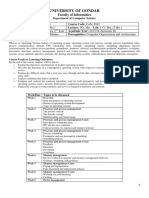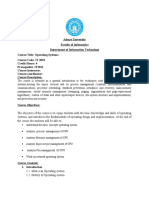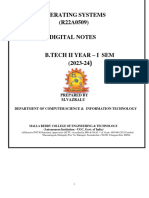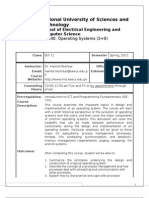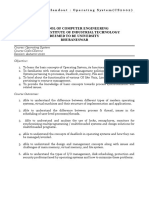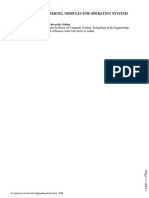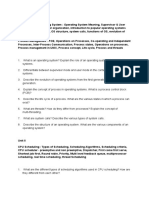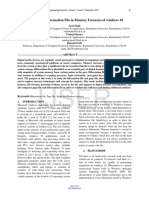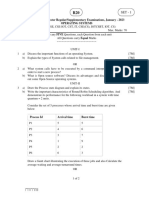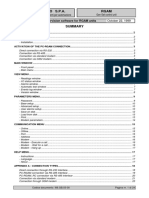0% found this document useful (0 votes)
115 views3 pagesCourse Title
The document describes an operating systems course including the course code, credit points, pre-requisites, topics to be covered over 16 weeks such as processes, memory management, device management, file systems, and security. The course goals are to explain operating system functions, tasks, deadlocks, scheduling algorithms, and virtual memory.
Uploaded by
metasebiamerkin7275Copyright
© © All Rights Reserved
We take content rights seriously. If you suspect this is your content, claim it here.
Available Formats
Download as DOCX, PDF, TXT or read online on Scribd
0% found this document useful (0 votes)
115 views3 pagesCourse Title
The document describes an operating systems course including the course code, credit points, pre-requisites, topics to be covered over 16 weeks such as processes, memory management, device management, file systems, and security. The course goals are to explain operating system functions, tasks, deadlocks, scheduling algorithms, and virtual memory.
Uploaded by
metasebiamerkin7275Copyright
© © All Rights Reserved
We take content rights seriously. If you suspect this is your content, claim it here.
Available Formats
Download as DOCX, PDF, TXT or read online on Scribd
/ 3
